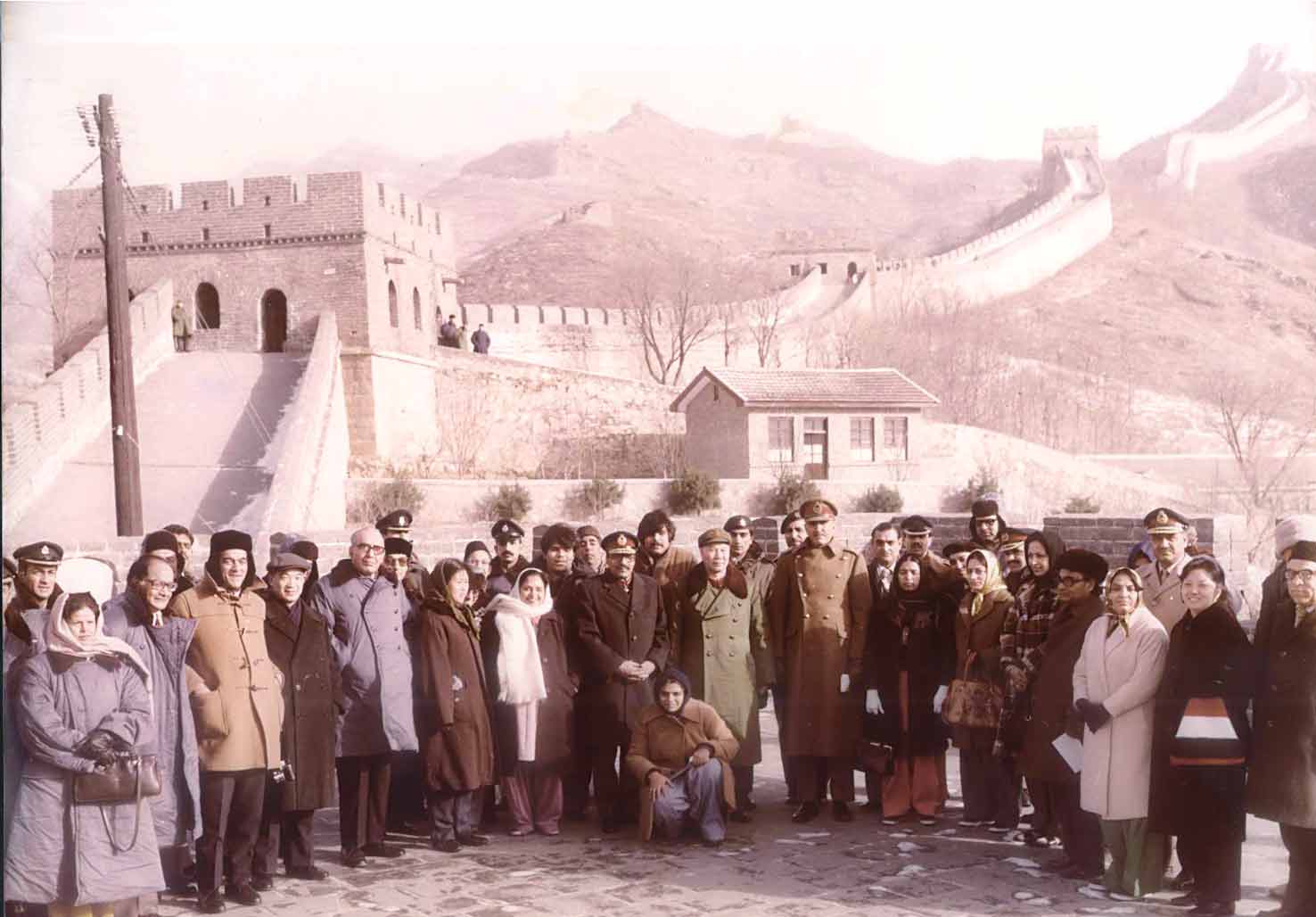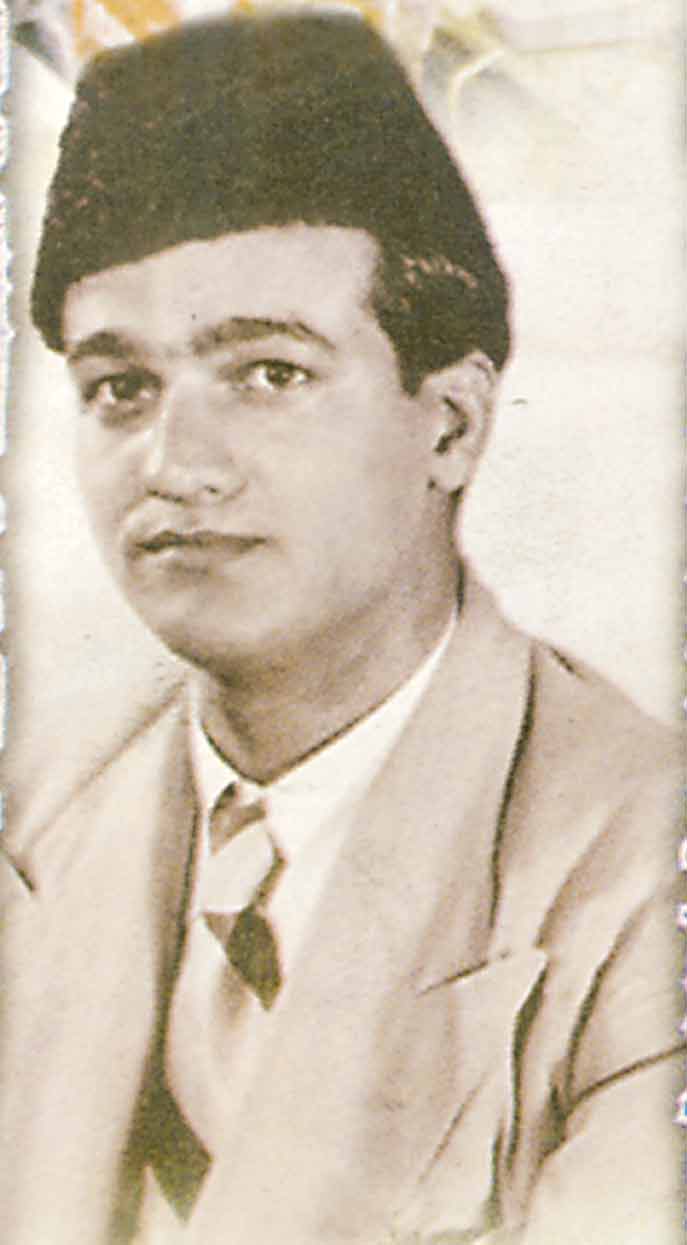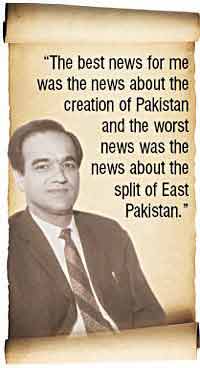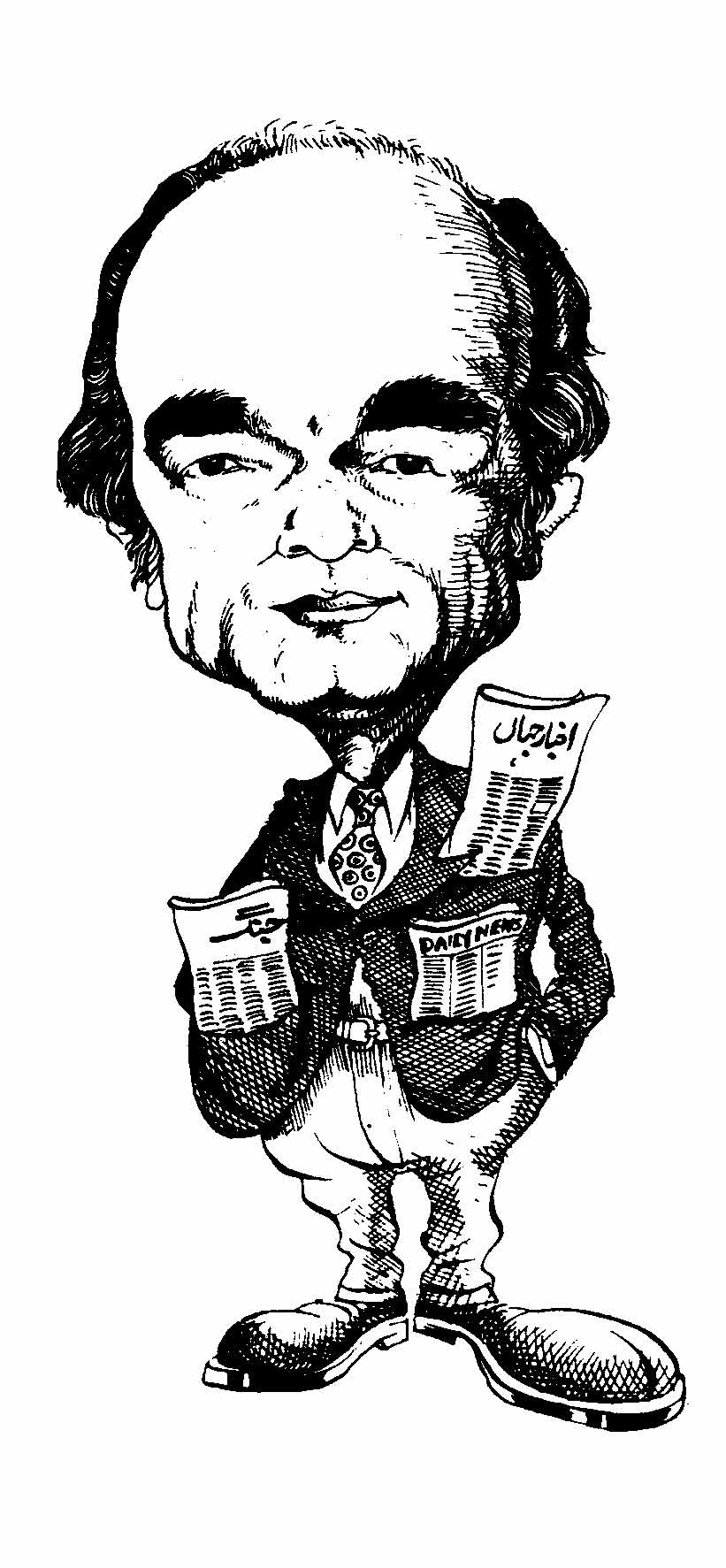Words speak volumes
It’s been 27 years since Mir Khalil-ur-Rahman, the founder of Jang Group, left this world to live in his heavenly abode, but still, after more than two decades, it isn’t hard to find the admirers of Mir Saheb.
Rupert Murdoch is an Australian-born media mogul, the executive chairman of 21st Century Fox, and executive chairman of a newspaper empire News Corporation. His father, Sir Keith Murdoch had been a reporter, editor, and senior executive of the Herald and Weekly Times newspaper publishing company, covering all Australian states except New South Wales. For Rupert Murdoch, “great journalism will always attract readers. The words, pictures and graphics that are the stuff of journalism have to be brilliantly packaged; they must feed the mind and move the heart.”
On the same note, Mar’a de la Soledad Teresa O’Brien, an American broadcast journalist and executive producer and the anchor for CNN morning show Starting Point, says, “ I don’t think journalism changes. It’s about digging into stories and telling them well. The basic tenets of great reporting stay the same while things around it change. “
These and other quotes given by great media personalities of our time point towards the onerous task a journalist has to fulfill and the responsibility a print or electronic media organisation has towards its society and its people. Only those people and organisations have left their indelible marks in this field who have kept these norms as the basic pillars of their profession. sa
Pakistan is a country where many media personalities have gained international fame due to their sheer hard work in this field. Some of them have also attained a legendary status over the years. One such personality is of Mir Khalil-ur-Rahman, who is termed as the “Father of modern Urdu journalism.” He earned this title not only because of his Urdu newspaper Jang which became a household name and a tool for educating and informing the masses, but also because of the technological advancements he brought in, in the country in this field. Both his friends and rivals acknowledge his services.
It’s been 27 years since Mir Khalil-ur-Rahman, the founder of Jang Group, left this world to live in his heavenly abode, but still, after more than two decades, it isn’t hard to find the admirers of Mir Saheb. Some enjoyed personal relationship with him while others kept it professional. For the workers of his organisation, he was a mentor, a teacher and an example to follow. While for the people who knew him personally, he was more than a friend, always there for them in their time of need. We interviewed some of his workers, and his close friends, who recalled the memories of Mir Saheb.
Wajihuddin Ahmed, former Judge of the Supreme Court of Pakistan and the acting Chairman of Aam Log Ittehad Party (ALIP), while sharing his memories about Mir Saheb, said that whenever he met with Mir Saheb, he found him to be a modest and a down-to-earth person.
He added that Mir Saheb was a man with great reputation in the newspaper industry of Pakistan. Undoubtedly, he was the leader of this industry and financially he was in a very sound position but still he was a down-to-earth person that showed his inner decency and brilliance.
Ahmed, who spoke at length on Mir Saheb, said that he would always keep himself abreast of any technical advancement going on in the print industry not only in Pakistan but any innovations in the international technological world never skipped his eyes. He wanted to make his newspaper more viable and useful for the readers. He was also open to the suggestions given by his friends and his well wishers. Ahmed pointed out that he also gave Mir Saheb some suggestions on how to make pages (other than the front page) in such a way that the portions of the news which were carried forward from front page to other pages, become easy for the readers to find out and read. The suggestions given by him (Ahmed) were taken seriously by Mir Saheb, and soon he noticed that the remaining portions of the news stories carried forward from front page to other pages were made so easy to read by marking them with specific numbers. This practice is still in vogue in Jang.
While recalling another meeting with Mir Saheb, Ahmed said that once he was hearing a case in which Mir Saheb was not even the defendant but Ahmed was surprised to notice that Mir Saheb himself was present in the court and attending the hearing. Ahmed further said that it showed the deep sense of responsibility Mir Saheb had towards newspapers in general, though he himself was neither summoned nor indicted to be a respondent in any case.
A leader of Jamiat-i-Ulema-i-Islam (F), Qari Sher Afzal, termed Mir Saheb as a God-fearing man and a strong believer of Khatm-e-Nabuwwat (the finalty of Prophethood). “Mir Saheb proved his conviction by his actions and helping the believers on achieving their tasks in Pakistan in this regard,” said Sher Afzal.
Qari Sher Afzal said that there was a time when he was very close to Mir Saheb and used to visit his office frequently and Mir Saheb would always welcome him. Due to his frequent visits, his friends used to call him a close friend of Mir Saheb. However, Mir Saheb, despite this close friendship with him, never gave him undue political favour in his paper as he was determined to maintain an impartial policy for his newspaper. “Once I suggested to Mir Saheb that his sons should contest elections. Mir Saheb did not agree to this suggestion as he clearly said that he and his paper enjoyed an impartial policy in terms of politics and if his sons contest elections it would create a different impression of his newspaper which was not fair,” he recalled.
President of Pakistan Mazdoor Kissan Party (PMKP), Advocate SM Altaf, while recalling his memories said that he, along with other students, representing the National Students Federation (NSF), used to visit the office of Jang when it was located near Eidgah, adjacent to Qureshi Hospital.
“Mir Saheb was very kind to students, his newspaper always tried to adjust press releases of these students’ representatives,” said Altaf. He further said that once a group of students gave their version through a press release and tried to undermine the role of another students’ group, on the some issue. The representatives of the other group approached Mir Saheb directly. He listened to them patiently and asked his staff to adjust their viewpoint as well. This was the reason as to why students of his time never hesitated to give any major development on the students’ activities in Karachi University and other colleges of the city in his newspapers. The students would always inform the newspaper editorial staff about any wrong news floated by some other group to mislead people. In such a case, the same news used to be dropped by the staff immediately. SM Altaf further said that Mir Saheb was a kindhearted person and used to help people in their hard times. He cited the example of one of his employees, namely Dada Basheer, who served Mir Saheb in different capacities like driver and helper for many years. Dada Basheer was the father of three daughters and had no house to live. When Mir Saheb shifted his offices to I I Chundrigar Road, he gave his plot, where the Jang offices were located earlier, to Dada Basheer after his retirement. “It was the generosity of Mir Saheb to permit Dada Basheer to stay at that place forever. Such acts of kindness are unmatched and remembered for ever”, said Altaf.
Another ALIP leader Azhar Jamil said that once he visited Mir Saheb, in order to discuss a misleading story published in Jang given by some right wing politicians. He was accompanied by the then Qaumi Mahaz-e-A’azadi Chief, Meraj Muhammad Khan.
It was probably early eighties when Meraj Muhammad Khan was a renowned left wing leader of the country who complained to Mir Saheb about the publication of some news, which to him seemed misleading. Azhar Jamali briefed Mir Saheb about the wrong version of the right wing politicians who created an impression as if the left wing leaders have disappeared from the political scene. Mir Saheb listened to them calmly and replied that the policy of his newspaper was impartial. The policy is aimed at examining the worth of the news and nothing more. He offered Meraj Muhammad Khan to write his point of view clearly and the same will also be published in his newspaper.
“Such a wonderful, professional and kind attitude of Mir Saheb not only inspired Meraj Muhammad Khan but also his colleagues, who visited the office along with him,” said Altaf.
Senior Editor of Geo TV Network, Muhammad Nasir, said that it was his golden time when he worked with Mir Khalil-ur-Rahman who proved to be a great teacher and mentor to him. While sharing his memories with Mir Saheb, Nasir said that Mir Saheb taught him the basics of journalism and the ways to work in this field. Nasir further added that Mir Saheb was well versed with the practical journalism and its prerequisites in the field. He informed that Jang Group was the first newspaper that imported the most modern printing technology of the time in order to bring the newspaper at par with the international standards, besides keeping its readers updated on the national and international affairs. Nasir recalled the time when for the first time a fax machine was imported in Jang office, and he was briefly trained by Mir Saheb himself on how to work on that machine and receive and send correspondence. “Only Pir Pagara Saheb, the then leader of Pakistan Muslim League (F), had such modern equipment other than Mir Saheb,” informed Nasir.
He further said it was the desire of Mir Saheb to make his newspaper modern in terms of technology, and that was why he brought in modern equipment and trained his workers on them. Nasir also gave reference of the concept of printing of coloured pictures for the first time in Jang’s newspapers and periodicals, adding that Mir Saheb was indeed one of the most forward-looking journalists, who would keep an eye on modern printing technology as well as processes.
Nasir said he never saw Mir Saheb ever giving a cold shoulder to any of his employees or any other person who visited him despite the fact that he had a lot of irons in his fire as being the owner and Editor of the Jang Group. “He used to check each and every line in the newspaper before sending it to final printing,” Nasir added.
President of Arts Council of Pakistan (Karachi), Muhammad Ahmed Shah, said that Mir Saheb was a man of a great vision who introduced modern technology in Jang and in other periodicals of Jang Group. Shah recalled the days when he met Mir Saheb. “Mir Saheb used to take keen interest in the affairs of youths and their advancement. He also introduced awards for the brilliant students of Karachi University’s Mass Communication department.
Every year, brilliant students not only get awards from Jang Group but they are also offered good job opportunities in the Jang Group,” Shah added.
“It was in 1981 when a group of students of Karachi University held a seminar on journalism at a local hotel. The seminar was not only sponsored by Mir Saheb but he also accepted the request of the students to become the chief guest of the event and give gold medals to the position holders of the Mass Communication Department of the University.” Shah further said that since he was representing the students’ group, he drew the attention of Mir Saheb towards the problems of unemployment of fresh graduates and requested him to hire qualified graduates in his organisation. “Mir Saheb immediately approved the request and announced jobs for all the qualified students who had graduated from the Mass Communication Department of the Karachi University.”
Ahmed Shah said that the announcement of Mir Saheb not only encouraged the graduates but it also showed Mir Saheb’s zeal, interest and commitment towards the advancement of the journalists of the country.
Shah also paid rich tributes to Mir Shakil-ur-Rahman by adding that the brilliant sons of Mir Saheb carried forward the vision of their father and despite all the hurdles and difficulties, they managed to achieve the goal of great success by adding popular English newspaper The News International and satellite TV channels under the brand name of Geo TV Network under the umbrella of Jang Group.
Throughout his life, Mir Saheb tried to find truth and then conveyed it to his readers, who always trusted Jang for its impartial reporting. He lived true to the words of Walter Cronkite, an American broadcast journalist, “We all have our likes and our dislikes. But... when we’re doing news - when we’re doing the front-page news, not the back page, not the op-ed pages, but when we’re doing the daily news, covering politics - it is our duty to be sure that we do not permit our prejudices to show. That is simply basic journalism.
-
Security forces gun down 30 terrorists in multiple IBOs in KP: ISPR
-
MQM-P calls for new province in Sindh
-
US report validates Pakistan military edge over India: PM
-
Banned TTP poses serious threat to Pakistan security: UNSC panel
-
CM Afridi clarifies remarks on by-poll after ECP requests army deployment
-
Dubai sees 3.2m Pakistani passengers in 2025 as airport sets new milestone
-
Security forces kill 23 Indian proxy terrorists in KP's Kurram
-
Pakistan to construct island to boost oil exploration: report















